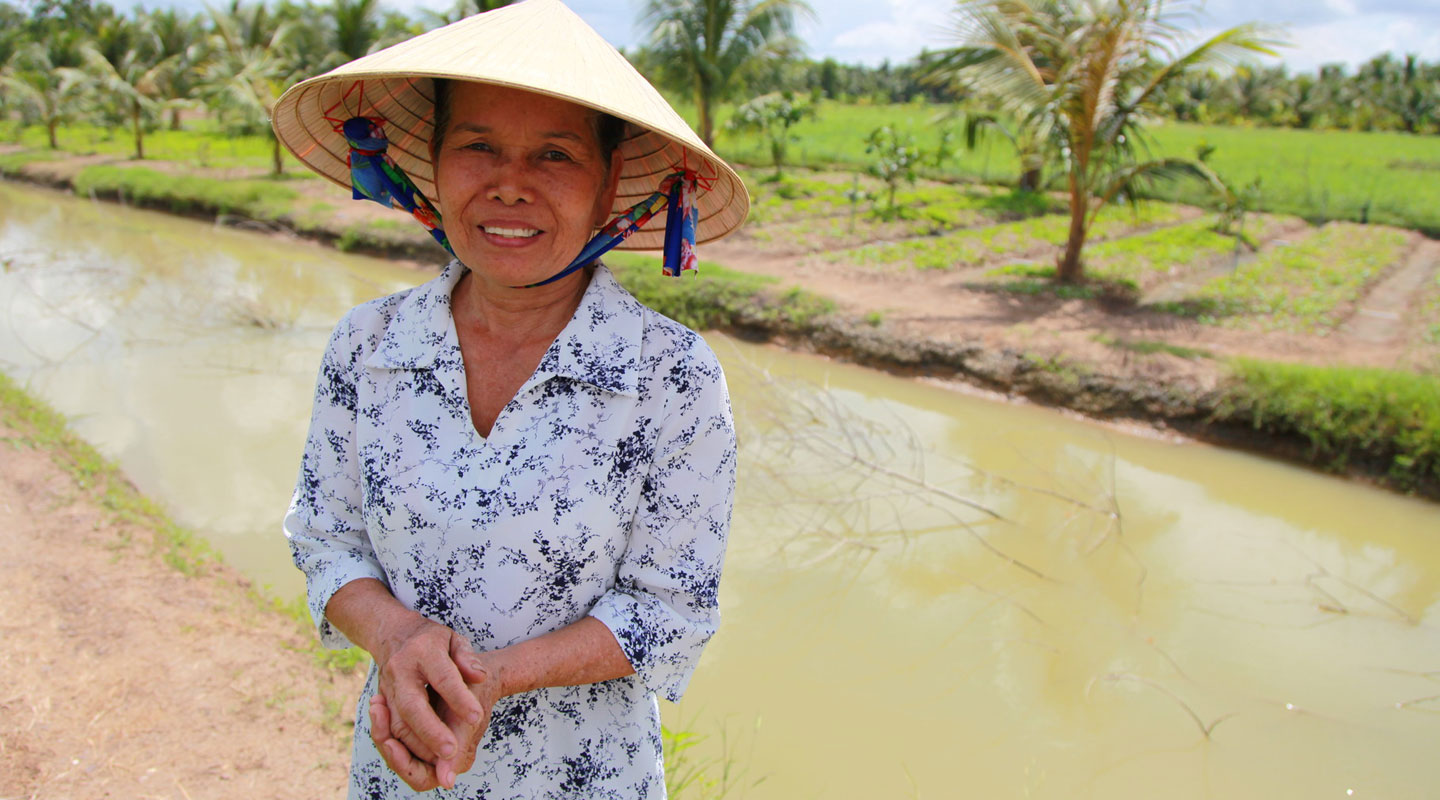IFAD loan to enable small-scale farmers in Viet Nam to plan for, cope with and adapt to climate change impacts
IFAD Asset Request Portlet
Publicador de contenidos
IFAD loan to enable small-scale farmers in Viet Nam to plan for, cope with and adapt to climate change impacts
16 febrero 2023
Rome, 16 February 2023: The International Fund for Agricultural Development (IFAD), the UN’s rural development agency, and the Socialist Republic of Viet Nam last week signed a loan agreement to promote inclusive and sustainable agricultural growth in the Mekong Delta. The Climate-smart Agricultural Value Chain Development (CSAT) project will generate sustainable income opportunities and improved rural livelihoods for 60,000 families engaged in small-scale farming.
Though Viet Nam has made impressive progress in reducing poverty over the last 30 years, the average income per capita in rural areas is less than half that in urban areas. While agriculture, which employs 37 per cent of the population, has contributed greatly to economic growth, it has also been characterized by an unsustainable exploitation of natural resources. In the Mekong Delta, overuse of surface and ground water is leading to water scarcity. Climate change effects such as rising sea levels, droughts and increasing temperatures have taken their toll on agriculture as well. As a result, this region is the only one in Viet Nam where the poverty increased between 2015 and 2019.
“Viet Nam’s small-scale farmers, particularly in the Mekong Delta, face multiple challenges, including volatile food and fuel prices and the effects of climate change,” said Ambrosio Barros, IFAD Country Director, Viet Nam. “Our goal is to enable small-scale farmers, and especially rural women and youth, to move from subsistence farming to climate-resilient, market-oriented agriculture, enabling them to earn increased, sustainable incomes,” he added.
Rural households in the Mekong Delta have limited access to water infrastructure, insurance and climate-sensitive agro-advisory services to mitigate risks – a critical gap in a low-lying river delta identified as one of the most vulnerable to climate change, notably in terms of sea level rise, droughts, extreme heat and severe storms. CSAT will invest in climate-resilient infrastructure needed to develop inclusive and sustainable value chains. It will support better access to financial and extension services, and encourage small-scale farmers to adopt environmentally sustainable and climate-resilient technologies, including efficient water usage. CSAT will also work to integrate climate resilience more strongly in provincial and regional planning.
IFAD is providing a US $43 million loan towards the total project cost ($136.4 million) over 5 years. In addition, the Dutch Fund for Climate and Development is providing $40.01 million, and the national government is providing $17.87 million, with $4.6 million contributed in-kind by project participants. Additional private sector financing will be available for producer groups and investments in small and medium enterprise and value chain development.
In Viet Nam, IFAD has supported 17 projects directly benefitting 738,470 households, at a cost of US$788.10 million with an IFAD loan of US$463.49 million. It focuses on activities that have the greatest impact on residual poverty in rural areas, developing market-led innovations that aid poor people.
Read more about our work in Viet Nam here | Follow us on Twitter: @IFADSouthAsia
Press Release No.: IFAD/16/2023
IFAD is an international financial institution and a United Nations specialized agency. Based in Rome – the United Nations food and agriculture hub – IFAD invests in rural people, empowering them to reduce poverty, increase food security, improve nutrition and strengthen resilience. Since 1978, we have provided more than US$24 billion in grants and low-interest loans to fund projects in developing countries.
A wide range of photographs and broadcast-quality video content of IFAD’s work in rural communities are available for download from our Image Bank.
